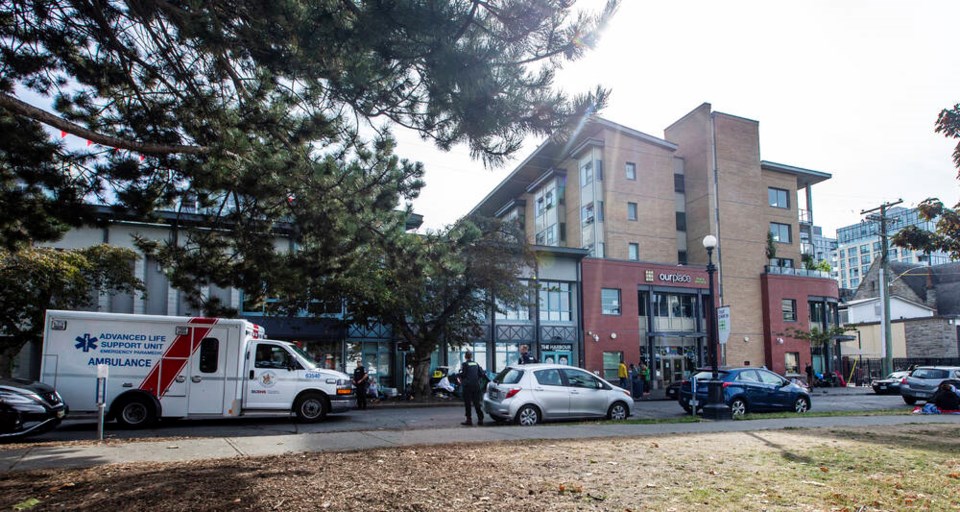Politicians are leery about the sensitivities around locking up dangerous people with mental health and addiction problems. The preferred alternatives are “complex care,” “super supportive housing,” and other options that stop short of “involuntary care.”
Still, the idea continues to come up, propelled partly by frightening anecdotes of random attacks being reported on city streets.
The NDP government tip-toed near the concept last year, introducing a bill that would have enhanced that option for short-term treatment of juveniles in addiction distress. Some street level workers in the field supported it, but many other interest groups objected. So the NDP parked it.
The concept still gets mentioned. Our Place CEO Julian Daly appeared before a committee of MLAs two weeks ago and urged more secure care options. “Some of the most unwell and vulnerable people on the streets across British Columbia who need housing will not accept or maintain it without some period of involuntary care,” he said.
He also stressed the need for longer-term care. Many clients go through the 30- or 60-day programs “10 or 11 times.” It doesn’t work because the root traumas take much longer to treat.
Daly said shorter-term programs work for some, but not most, and they are costly when clients use them multiple times.
Nanaimo Mayor Leonard Krog also called for secure care in an interview last week with CBC Radio’s Gregor Craigie.
“There is a tide of human misery on our streets and the only way it’s going to be fixed … is if governments provide the kind of housing and supports, and as I’ve argued many, many times for severe cases, secure facilities for those who are deeply troubled,” Krog said.
Those views were in the background Wednesday as Mental Health and Addictions Minister Sheila Malcolmson announced $132 million worth of addiction treatment programs. They add up to 195 new treatment beds, dozens more enhanced support services and 130 more staff.
It’s not clear if any are long-term, but most aren’t. Malcolmson instead stressed there will be more transition and after care and more supports for patients.
Asked about secure care, she said there are already facilities but the emphasis is on more and better supportive housing. “Flex care housing” would provide spaces clients can rely on even as they do stints in treatment, or jail. “It’s not about secure facilities, but it is about a better connection to treatment,” she said.
There is ongoing emphasis on the need for a continuum of care. But it looks like the continuum stops short of widening the option of confining people against their will.
Just So You Know: Those politicians worried about blowback on the topic might be interested in Daly’s further experience in the matter.
He advocated for more secure care in a Times Colonist opinion piece last April 27.
An excerpt: “Sometimes folks are so unwell that they are in desperate need of help, but because of their illness are utterly unable to make a rational and informed decision in their own best interests.
“In these situations, we believe it is the right thing to compel care. We believe that in doing so their rights are recognized - the right to be safe, the right to be housed, and the right to good health.
“In doing so, we remove people from incredibly vulnerable and dangerous situations. We believe this should be done only in extreme circumstances and with strong and transparent legal safeguards, limits and boundaries.”
At the recent committee meeting, five months after the piece appeared, he said: “I got more response to that article than anything else I’ve ever said or written in my whole working life. People I didn’t even know — parents, sisters, brothers — wrote to me, saying: ‘Thank God someone finally said this, because I have a relation or a family member who really needed this, and they couldn’t get it.’
“I even had two people write to me, saying it had saved their life to have involuntary care, so I think we do need that aspect to it, if we’re to truly support the health needs of the most vulnerable in our streets. And the most vulnerable of those are women, too, who are hugely sexually exploited and exploited in other ways on the streets when they’re that unwell.”



